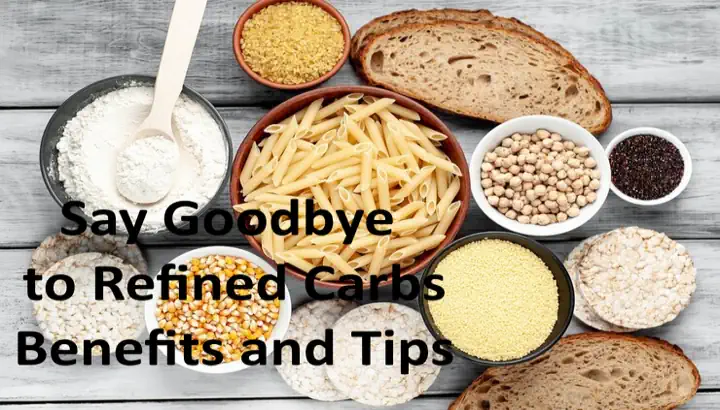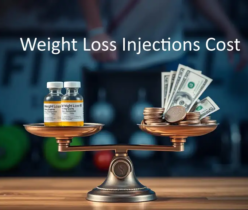If you’ve ever walked down the grocery aisle, you might have noticed the explosion of brightly packaged snacks, sugary drinks, and white bread. Those deliciously tempting options often contain refined carbohydrates—the kind of carbs that are stripped of their nutrients and fiber during processing. So, why should you care about refined carbs? Well, let’s dive into the benefits of cutting them from your diet and some practical tips to make the transition easier.
What Are Refined Carbohydrates?
Before we get into the nitty-gritty, let’s clarify what refined carbohydrates actually are. In simple terms, these are carbs that have been processed to remove their natural fiber and nutrients. The result? Foods that are often easy to digest but offer little in the way of nutritional value. Common culprits include:
- White bread
- Pastries
- Sugary snacks and desserts
- Pasta made from white flour
- Some breakfast cereals
In contrast, whole carbohydrates—like whole grains, fruits, and vegetables—retain their nutrients and provide a steady source of energy.
“The food you eat can either be the safest and most powerful form of medicine or the slowest form of poison.” – Ann Wigmore
Why You Should Say Goodbye to Refined Carbs
There are several compelling reasons to ditch refined carbohydrates. Here are just a few:
1. Blood Sugar Levels
Eating foods high in refined carbs can lead to rapid spikes in blood sugar levels, which can cause energy crashes and cravings shortly after. This rollercoaster effect can make it tough to maintain a steady energy level throughout the day.
2. Weight Management
Refined carbs are often low in fiber, meaning they don’t keep you feeling full for long. This can lead to overeating and, ultimately, weight gain. By cutting these out, you can make it easier to manage your weight.
3. Increased Risk of Chronic Diseases
Research has shown that high consumption of refined carbohydrates is linked to conditions like heart disease, diabetes, and obesity. By reducing your intake, you can lower your risk and improve your overall health.
4. Digestive Health
Fiber is crucial for digestive health, and most refined carbs don’t provide it. A diet low in fiber can lead to issues like constipation and bloating. On the other hand, whole grains and other fiber-rich foods can help keep your digestive system running smoothly.

Benefits of Cutting Refined Carbohydrates from Your Diet
Now that we’ve covered why you should say goodbye to refined carbs, let’s talk about the benefits you’ll likely experience once you do.
1. Improved Energy Levels
When you eliminate refined carbohydrates, you’ll find your energy levels stabilize. Whole foods provide a more sustained release of energy, helping you avoid those pesky afternoon slumps.
2. Better Mood Stability
Your diet can significantly impact your mood. By reducing your intake of sugary snacks and other refined carbs, you might notice improvements in your mood and mental clarity.
3. Enhanced Nutrient Intake
When you shift your focus away from refined carbohydrates, you’ll naturally start incorporating more whole foods like fruits, vegetables, and whole grains, which are packed with vitamins and minerals.
4. Weight Loss
Many people report weight loss when they cut out refined carbs. This is often due to decreased calorie intake and improved satiety from eating fiber-rich foods.
5. Better Heart Health
A diet lower in refined carbohydrates can help improve cholesterol levels and lower blood pressure, both of which contribute to better heart health.
“Eat food, not much, mostly plants.” – Michael Pollan
How to Transition Away from Refined Carbs
Making a change like this might feel daunting, but it doesn’t have to be. Here are some tips to ease you into the transition:
1. Read Labels Carefully
Start by educating yourself on food labels. Look for words like “whole grain” or “100% whole wheat.” If you see “refined” or “enriched,” those are red flags.
2. Swap Out Your Favorites
It’s okay to indulge now and then but try swapping out some of your favorite Refined Carbohydrates for whole-food alternatives. For instance, instead of white rice, try brown rice or quinoa.
3. Meal Prep
One of the best ways to avoid reaching for refined carbs is to have healthy meals ready to go. Spend a couple of hours each week prepping your meals, so you always have nutritious options at hand.
4. Snack Wisely
Ditch the chips and cookies for healthier snacks like fruits, nuts, or yogurt. Keeping healthy snacks on hand can help curb cravings for refined carbohydrates.
5. Gradual Changes
Don’t feel like you need to cut out all refined carbs overnight. Gradually reducing your intake can make the process less overwhelming and more sustainable.
“You don’t have to be extreme, just consistent.”
Table 1: Comparison of Refined vs. Whole Carbohydrates
| Type of Carbohydrate | Nutritional Value | Fiber Content | Example Foods |
|---|---|---|---|
| Refined Carbohydrates | Low | Low | White bread, pastries |
| Whole Carbohydrates | High | High | Brown rice, whole grain bread |
What to Eat Instead of Refined Carbohydrates
Transitioning away from refined carbohydrates doesn’t mean you have to give up on carbs altogether. Here’s a quick list of some healthy alternatives:
- Whole grains: Brown rice, quinoa, barley
- Legumes: Lentils, chickpeas, black beans
- Fruits and Vegetables: Fresh produce is packed with nutrients
- Nuts and Seeds: Almonds, chia seeds, flaxseeds
Table 2: Healthy Alternatives to Refined Carbohydrates
| Refined Carb | Healthy Alternative |
|---|---|
| White bread | Whole grain bread |
| White rice | Brown rice or quinoa |
| Sugary cereals | Oatmeal or bran flakes |
| Pasta | Whole wheat pasta |
| Snack bars | Fruit and nut bars |
External Resources for Further Reading
- Harvard Health: Understanding Carbohydrates
- Mayo Clinic: Carbohydrates: How to Get the Most from Your Diet
- Cleveland Clinic: The Truth About Carbohydrates
Conclusion
Choosing to say goodbye to refined carbohydrates can open the door to a healthier lifestyle filled with energy and vitality. By swapping out processed foods for whole, nutrient-dense alternatives, you’re investing in your health and well-being. It’s a journey, not a race—so take it one step at a time.
Ready to ditch those refined carbs? You got this!
FAQs
- What are some common foods that contain refined carbohydrates?
- Foods like white bread, sugary snacks, pastries, white rice, and many breakfast cereals often contain refined carbohydrates.
- How can I transition away from refined carbs?
- Start by reading labels, substituting whole foods, cooking at home, and finding healthier snack options.
- Are there any health benefits to cutting out refined carbs?
- Yes! Benefits include improved weight management, stabilized blood sugar levels, better digestive health, and reduced risk of chronic diseases.
- What can I eat instead of refined carbohydrates?
- Opt for whole grains, fruits, vegetables, nuts, and seeds instead of processed options.
- Can I still enjoy my favorite foods if they contain refined carbs?
- Absolutely! Moderation is key. You can occasionally enjoy your favorites while focusing on whole foods most of the time.




